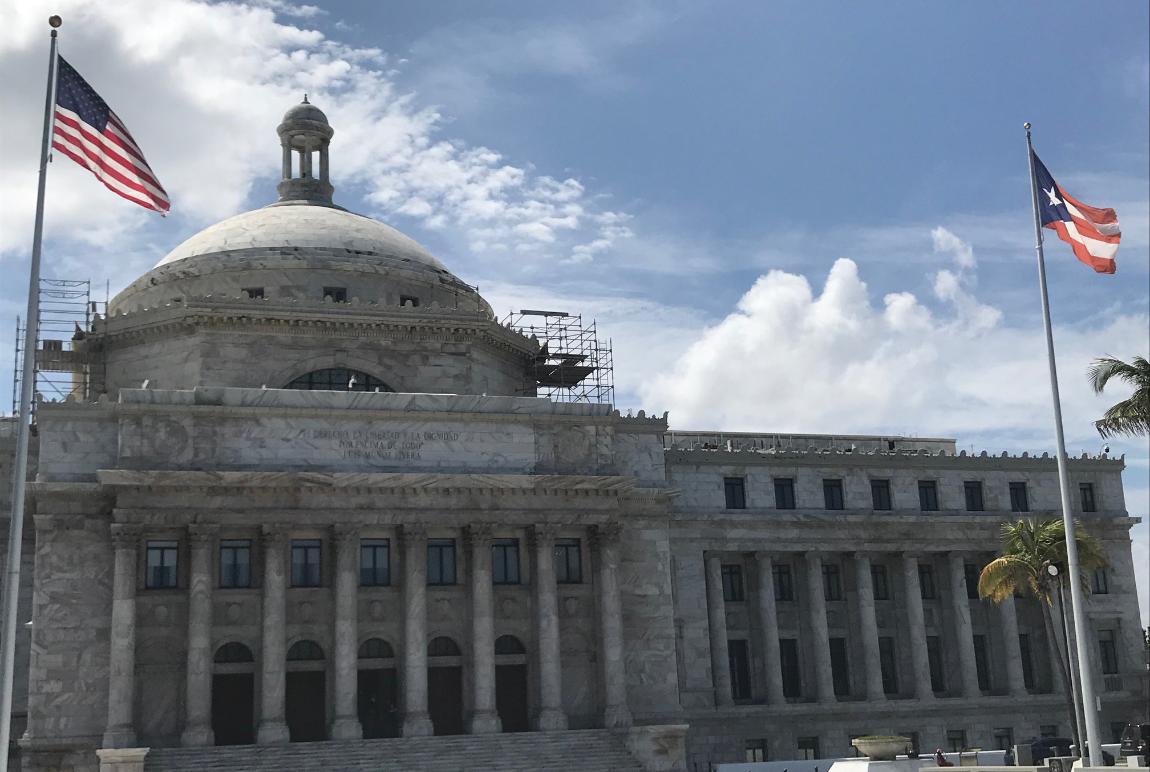

In just two years, groups of Longwood students will arrive in Puerto Rico—a Caribbean territory that has been the subject of intense debate since a devastating hurricane struck the island last summer.
They will be there to learn and ponder firsthand the question of what responsibilities the United States has to its territories—and, by extension, broader, interdisciplinary questions about what it means to be American and the nature of our compact with one another as citizens.
These kind of courses are unique to Longwood, and take for their north star our central mission of educating citizen leaders.
Dr. Ken Perkins, director of development for academic priorities and provost emeritus Tweet This
The course is the newest Brock Experience, the latest in a growing series of immersive, citizenship-focused courses at sites around the United States, from the American West to Arctic Alaska to New England. This latest offering—complementing nearly a half-dozen other Brock courses already existing or in the pipeline—will be developed by Dr. Melanie Marks, professor of economics. Receiving the two-year faculty fellowship to develop a Brock Experience is one of the top honors for a Longwood professor.
There are no easy answers to the questions surrounding the status of Puerto Rico—and that’s a big part of what defines a topic for a Brock experience. On the ground, Longwood students will interview Puerto Rican residents about their perceptions and views, visit local schools and businesses, and talk with officials to explore these questions more fully and dive into the civic—and uniquely American—debate.
“These kind of courses are unique to Longwood, and take for their north star our central mission of educating citizen leaders,” said Dr. Ken Perkins, director of development for academic priorities and provost emeritus, who serves on the Brock Experiences selection committee. “We have a solid foundation of courses and exciting new ones debuting this year, all exploring uniquely American issues as students grow into citizen leaders. We were impressed that this new course in Puerto Rico is in that same groove: an unforgettable experience and study that will translate to students’ own communities.”
In 2016, the largest gift in Longwood’s history—$5.9 million from Joan ’64 and Macon Brock—created an incubator for faculty to develop U.S.-based courses that study the important issues of our time. Courses in place or being developed include Yellowstone National Park to study stewardship of public lands, Chesapeake Bay to study sustainability issues, Arizona and Richmond to study immigration, Boston to study public art, Colorado River to study water-rights issues and the Arctic Circle to study natural resource extraction and management. Up to two new courses are selected each fall for a two-year development period, after which the course joins other fully developed courses as options for Longwood students.
Brock Experiences are modeled after the highly successful and popular Yellowstone course, where students have studied natural resource management for more than a decade. Courses typically take place during summer and involve travel to a place in the country to learn firsthand about an unresolved issue from a variety of perspectives.
At no time was the issue of the United States’ responsibilities to its territories in higher relief than when Hurricane Maria, a Category 5 storm, took deadly aim at Puerto Rico in September 2017, devastating the island and its economy. Estimates put the storm damage upward of $8 billion. At the height of the impact, all 3.4 million residents of the island were left without power as the grid was completely destroyed, and fresh water was scarce. In the year since Maria struck the territory, recovery has been slow and beset by numerous problems, both political and structural.
On the U.S. mainland, a debate played out in the press over what the responsibility of the United States government was to the citizens of Puerto Rico, amid some misconceptions about the role of the territory in American society and government.
“Before Hurricane Maria, many were unaware that Puerto Ricans are citizens of the United States,” wrote Marks in her proposal. “Puerto Ricans travel freely to the mainland, pay Social Security taxes, participate in Medicare and are subject to federal law. Yet they have their own constitution, no electoral votes in presidential elections, and Congressional representation is nonvoting. While the United Nations treats Puerto Rico as an independent nation, it is neither a country nor a state, from the U.S. perspective.”
Marks has led dozens of study abroad programs taking students to exotic destinations all over the world, including the Amazon jungle in Ecuador, Thailand, China, Costa Rica and Malaysia. Her team of supporting faculty members, Annette Rosado, senior lecturer in Spanish and a native Puerto Rican, and Dr. Mary Carver, associate professor of political science and a constitutional scholar, will bring additional expertise to help students explore the central issues.
The course will be piloted in 2020.
